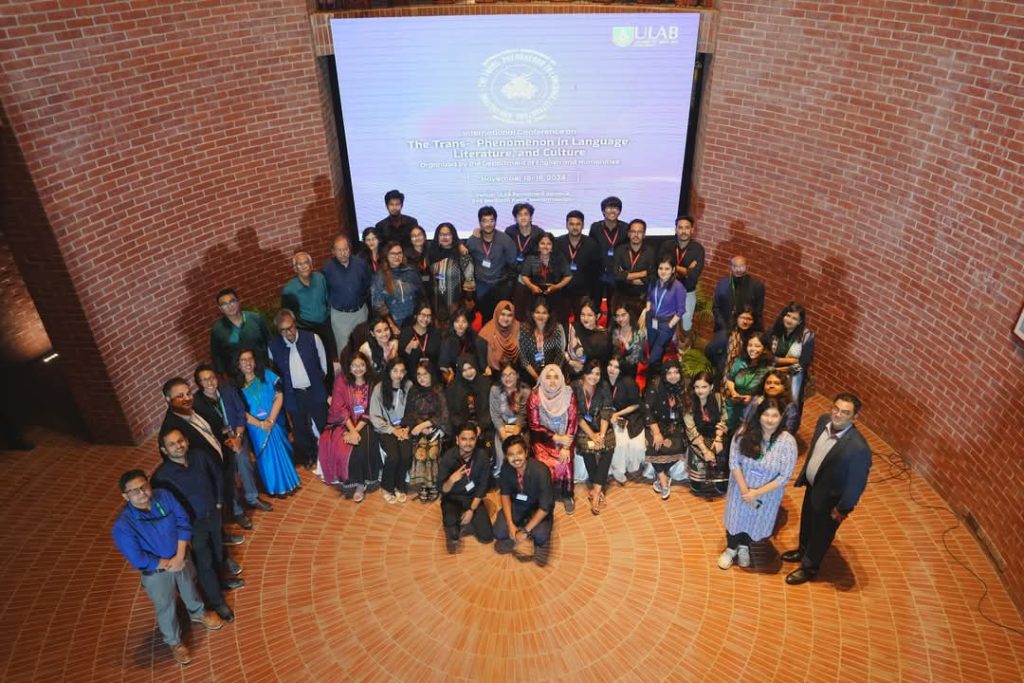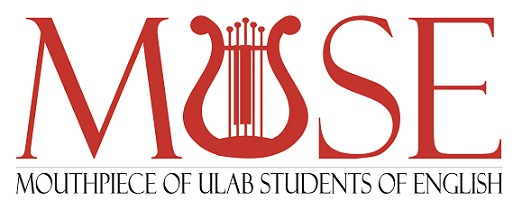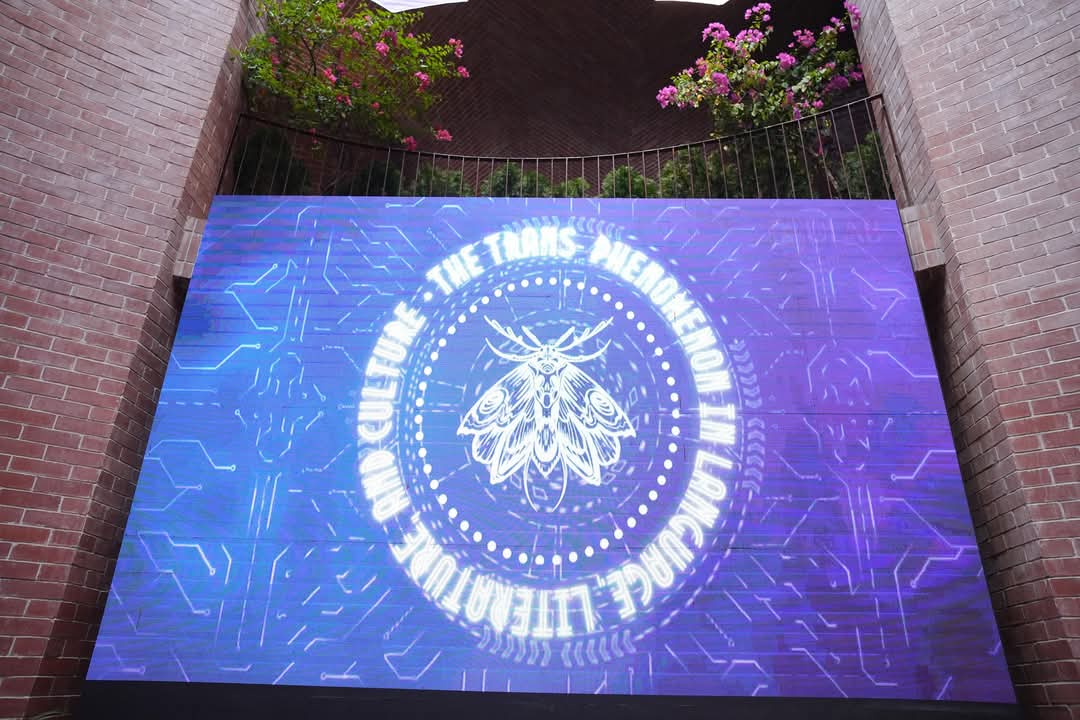By Fatema Aftab Miah and Abrar Farhan Zaman
The University of Liberal Arts Bangladesh (ULAB) recently hosted an internationally significant conference, ‘The Trans-Phenomenon in Language, Literature, and Culture’, on November 15-16, 2024. This event, organized by co-conveners Dr. Rafi Saleh and Dr. Abdullah Al Mahmud, blended global scholarship with local perspectives. The hybrid conference, which combined onsite and online participation, brought together scholars, activists, policymakers, and students from across the globe to examine the intersection of language, identity, and culture in contemporary studies.
The conference began with a welcome address by Professor Imran Rahman, Vice Chancellor of ULAB, alongside Professor Jude William R. Genilo, Pro-Vice Chancellor, and Professor Shamsad Mortuza, a notable academic from the University of Dhaka. Dr. Abu Saleh Mohammad Rafi, Associate Professor at ULAB, served as the convenor and guided attendees through the event.
Keynote speaker, Professor Kaiser Haq, Dean of ULAB’s School of Arts and Humanities, set the tone for the event with an insightful address on how the current ‘trans-age’ in literature is reshaping our understanding of identity and storytelling. He emphasized the philosophical importance of avoiding reification in cultural studies, highlighting how literature is both a reflection and an agent of social change.
The first panel discussion, titled “Glocalizing Professional Learning: Insights from the Margins”, featured prominent voices from Bangladesh. Notable speakers such as Professor Shaila Sultana from the University of Dhaka and Professor Mashrur Shahid Hossain from Jahangirnagar University critiqued the dominance of English in education while advocating for more inclusive, translingual practices. They discussed the marginalization of indigenous languages and the need for robust support for teacher-scholars in Bangladesh.
In a parallel session, speakers explored themes of “Community, Culture, and Languages: Social Justice at the Crossroads”, with Firoz Ahmed, Director of Editorial and Business Development at UPL, urging action to preserve ethnic minority languages. Mir Hojaifa Al Mamduh, a researcher and writer, discussed local communities’ role in decolonizing cultural practices, while Adivasi activist Ilira Dewan highlighted the ethical challenges in representing marginalized voices in academia.
The second day of the conference brought further intellectual engagement. Professor Guofang Li, Canada Research Chair at the University of British Columbia, delivered a keynote on the tensions within the transphenomenon and its implications for educational systems. Her exploration of plurilingual practices resonated with the conference’s overarching theme of creating inclusive learning environments.
Plenary sessions continued to push the boundaries of transnational scholarship. Dr. Azfar Hussain from Grand Valley State University presented on translation as a transnational praxis, emphasizing the transformative potential of words across cultural and linguistic borders. Dr. Shyam Sharma from SUNY Stony Brook and Dr. Nira Rahman from the University of Melbourne further explored ways to transcend cultural and geographical boundaries in academic work.
The day concluded with a special event titled Celebrating Ten Years of Translanguaging: Reflections and Future Directions, featuring esteemed scholars Professor Ofelia Garcia and Professor Li Wei. Their conversation on the evolution of translanguaging theory sparked lively discussions about its role in fostering justice and equity in multilingual education.
As ULAB continues to host such international events, it solidifies its position as a leading institution for global dialogue in language, literature, and cultural studies.


